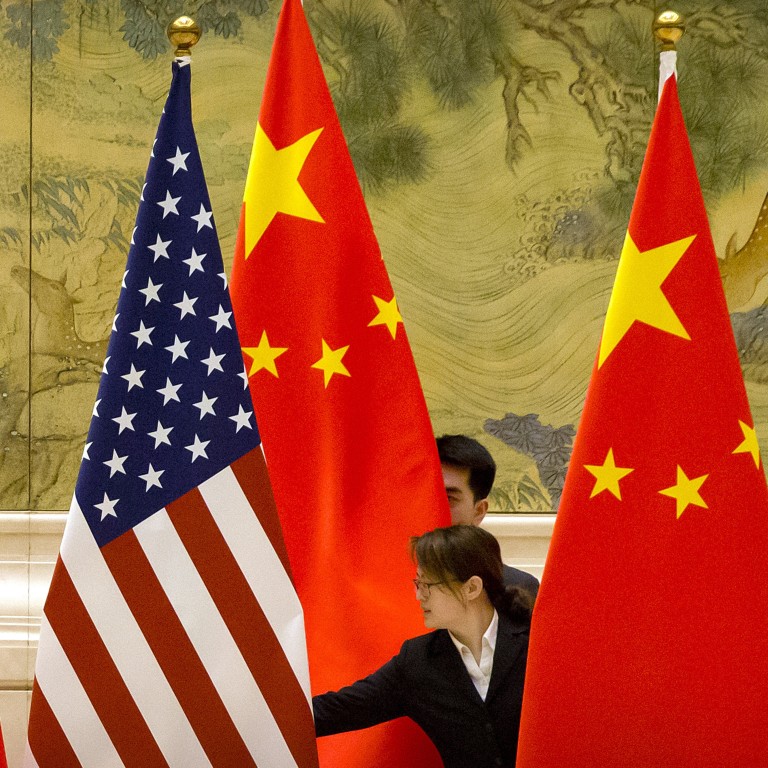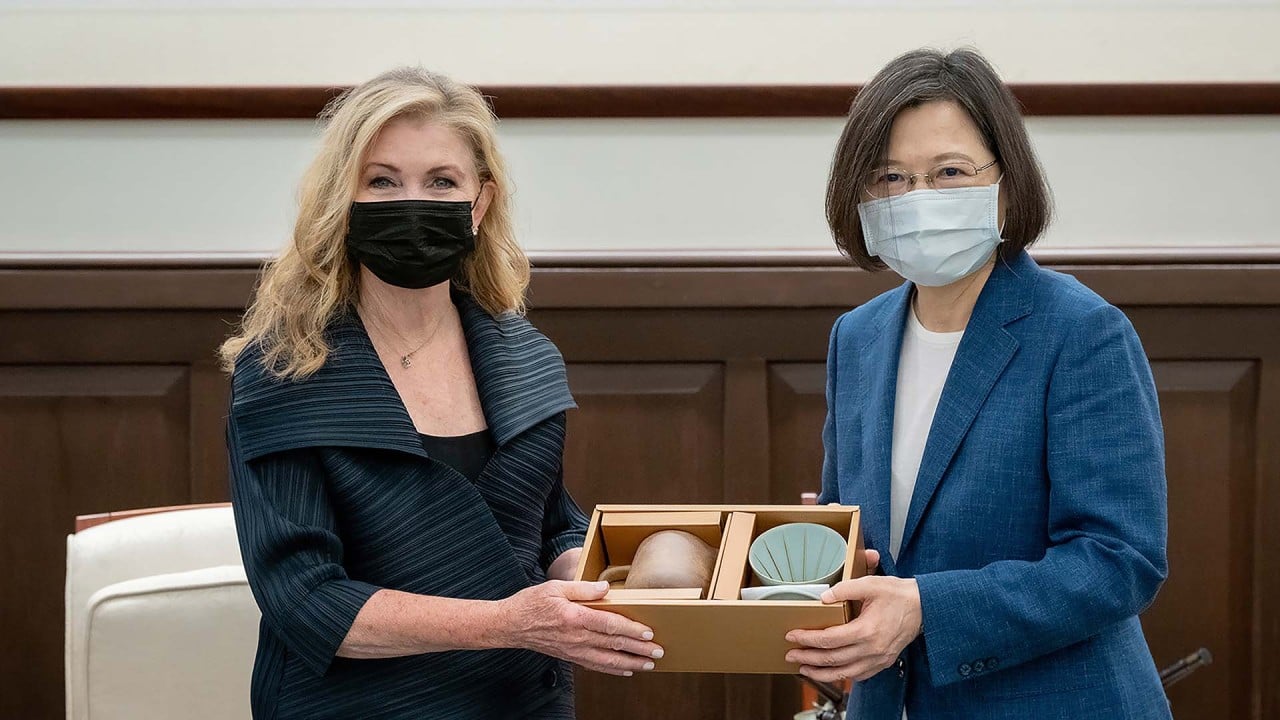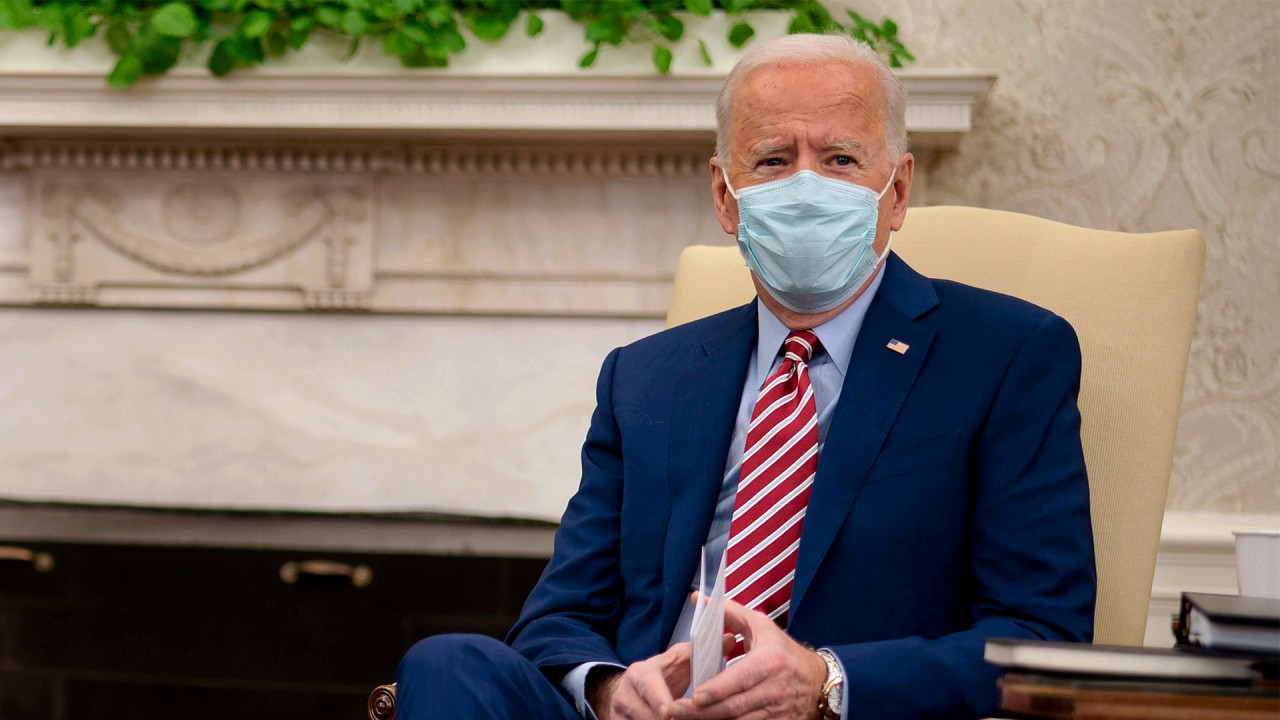
US must not seek to ‘contain’ rising China but learn to coexist, former policy adviser says
- US stance on Taiwan feeding Beijing’s belief that it seeks to use the island to ‘contain China’, ex-State Department staff Jessica Chen Weiss writes
- A foreign policy consumed by China risks undermining ‘the sustainability of American leadership in the world’, the Cornell professor warns
“Washington should avoid characterising Taiwan as a vital asset for US interests,” Weiss said. “Such statements feed Beijing’s belief that the United States seeks to ‘use Taiwan to contain China’.”
“The United States must bolster deterrence [on Taiwan] while also clarifying that its ‘one-China’ policy has not changed,” she advised.
Recapping the events of the past few decades, Weiss explained how Washington became alarmed by Beijing’s fast-growing clout and the likely threat it posed, after a honeymoon period in the 1980s and 1990s.
The US has stepped up military patrols in the South China Sea and pushed for Taipei to participate in international bodies for sovereign states.
Those moves have predictably enraged Beijing, which has vast contested claims over the waterway and views Taiwan as breakaway territory awaiting reunification.
The resulting combative approach on security on either side has produced a “mirroring dynamic”, triggering a “downward spiral” in the relationship, she noted.
Chinese experts warn against US-led strategy targeting Beijing in South China Sea
The fact that the US has now defined China as a competitor would push Beijing and Moscow closer, Weiss pointed out, as she cautioned against Washington’s foreign policy becoming so consumed by its relationship with China as to “undermine the sustainability of American leadership in the world”.
“The lodestar for a better approach must be the world that the United States seeks: what it wants, rather than what it fears,” the political scientist and Cornell professor of government wrote.
“Whether sanctions or tariffs or military moves, policies should be judged on the basis of whether they further progress toward that world rather than whether they undermine some Chinese interest or provide some advantage over Beijing.”
Instead of viewing their relationship through the prism of great power rivalry, the US and China should learn to “coexist”, Weiss said.
Douglas Paal, a former director of the American Institute in Taiwan who has also worked at the US State Department and White House National Security Council, is of the same opinion.
“Taiwan will do better in the long run if it is not made the focus of US-China contention. It can be managed, as it has been for over 40 years, with a focus on discipline in diplomacy and deterrence in strategy,” Paal advised.
A good place to start would be to not view every issue through the lens of US-China competition
“The stated policy goal of coexistence constantly encounters resistance from the specific ideological and regional policies the US otherwise pursues. A good place to start would be to not view every issue through the lens of US-China competition. Most other nations will be grateful, too.”
Wang Huiyao, founder of Centre for China and Globalisation, a Beijing-based think tank, believes the two countries should learn to share responsibility, work on shared issues of concern such as climate change and the food crisis, and not draw a line based on ideological values.
He also said the US must make a firm and clear promise to China that it would not cross the line in supporting Taiwan independence whether “in the past, now, or in the future”.
“Taiwan is a core interest of China … it’s the bottom line,” Wang warned.
Pelosi heads to Asia after Xi warns US not to ‘play with fire over Taiwan’
Mainland China and Taiwan split in 1949 at the end of a civil war in 1949 after the losing Nationalist forces lost and fled to the island.
Beijing views Taiwan as a part of the country under its one-China principle, and has never ruled out the use of force to take control of it. Most countries, including the US, do not recognise self-governed Taiwan as an independent state. Washington, however, opposes any attempt to take the island by force.
Jassie Cheng, a China specialist at the National University of Singapore’s Lee Kuan Yew School of Public Policy, also feels a rethink is due.
“The visit of Nancy Pelosi to Taiwan has been very damaging for Beijing, and it is tantamount to declaring a failure of both China’s diplomacy towards the US and its policy towards Taiwan,” Cheng said referring to the House speaker’s unannounced trip to Taipei early this month.
Beijing had repeatedly warned against such a trip and responded with days of huge live military exercises encircling Taiwan, which continued as three more US political delegations visited the island this month.
PLA runs new live drills near Taiwan in face of ‘changing’ situation
“Not only does this make the US increasingly antagonistic towards China but it also makes Taiwan’s international influence continue to grow as a result of China’s ongoing military threats against Taiwan,” Cheng said.
Russia and China’s increased regional defence cooperation could evolve into “a stand-off between the US-Japan alliance and the China-Russia or China-Russia-North Korea alliance”, Cheng warned.
However, Wang at the Centre for China and Globalisation said Beijing did not need to pair with Moscow to counter the US but would do so if it is “forced to” by American actions.

 - Kawala Xie.jpg?itok=NogZcyZ-&v=1661304068)


